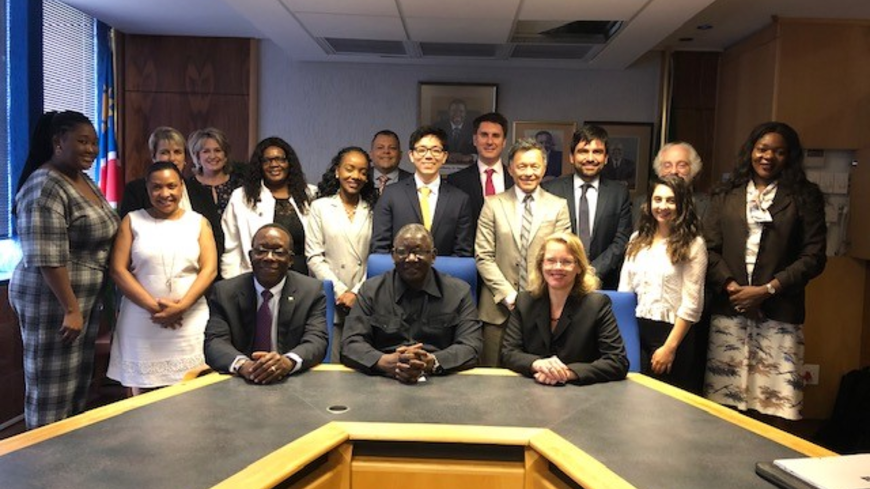An assessment of the cyber security and cybercrime capacities of Namibia has been conducted through a joint in-country mission of the World Bank, the Commonwealth Secretariat, the UK FCO and the Council of Europe, in the framework of the GLACY+ Project.
The initiative, coordinated by the Ministry of Information and Communications Technology of the Republic of Namibia, aimed to assess the current maturity level of the country on cyber security and cybercrime issues and provide a set of actionable recommendations. To do that, a consolidated methodology has been used: the CMM model developed by the Oxford University and successfully applied already in more than 90 countries.
Through a number of interactive meetings, five dimensions have been evaluated, respectively: (1) Cyber security Policy and Strategy; (2) Cyber Culture and Society; (3) Cyber security Education, Training and Skills; (4) Legal and Regulatory Frameworks; (5) Standards, Organizations and Technologies.
Interviews and workshops have been conducted with the participation of representatives from: Policy Owners, Government Ministries, Legislators, Criminal Justice, Law Enforcement Agencies, National Security Agencies, Local SOC Teams, IT providers, Regulators, Critical National Infrastructures, Private Sector, Academia, Civil Society and the International Community.
The series of meetings were opened by the remarks of the Honorable Minister of Information and Communications Technologies, who confirmed the full commitment of Namibia to move ahead with the adoption of a modern and complete legislative framework on cyber security, cybercrime and data protection, which is currently not yet in place. The intention has been also expressed to enroll in the process of accession to the international reference treaties in the field, i.e. the Budapest Convention and the Convention 108.



